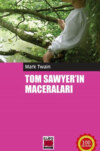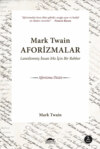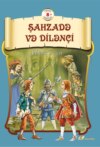Kitabı oku: «30,000 Dollar Bequest and Other Stories», sayfa 5
Chapter IV
Twelve days later.
Mother and child were lingering in the grip of the hideous disease. Of hope for either there was little. The aged sisters looked white and worn, but they would not give up their posts. Their hearts were breaking, poor old things, but their grit was steadfast and indestructible. All the twelve days the mother had pined for the child, and the child for the mother, but both knew that the prayer of these longings could not be granted. When the mother was told – on the first day – that her disease was typhoid, she was frightened, and asked if there was danger that Helen could have contracted it the day before, when she was in the sick-chamber on that confession visit. Hester told her the doctor had poo-pooed the idea. It troubled Hester to say it, although it was true, for she had not believed the doctor; but when she saw the mother’s joy in the news, the pain in her conscience lost something of its force – a result which made her ashamed of the constructive deception which she had practiced, though not ashamed enough to make her distinctly and definitely wish she had refrained from it. From that moment the sick woman understood that her daughter must remain away, and she said she would reconcile herself to the separation the best she could, for she would rather suffer death than have her child’s health imperiled. That afternoon Helen had to take to her bed, ill. She grew worse during the night. In the morning her mother asked after her:
“Is she well?”
Hester turned cold; she opened her lips, but the words refused to come. The mother lay languidly looking, musing, waiting; suddenly she turned white and gasped out:
“Oh, my God! what is it? is she sick?”
Then the poor aunt’s tortured heart rose in rebellion, and words came:
“No – be comforted; she is well.”
The sick woman put all her happy heart in her gratitude:
“Thank God for those dear words! Kiss me. How I worship you for saying them!”
Hester told this incident to Hannah, who received it with a rebuking look, and said, coldly:
“Sister, it was a lie.”
Hester’s lips trembled piteously; she choked down a sob, and said:
“Oh, Hannah, it was a sin, but I could not help it. I could not endure the fright and the misery that were in her face.”
“No matter. It was a lie. God will hold you to account for it.”
“Oh, I know it, I know it,” cried Hester, wringing her hands, “but even if it were now, I could not help it. I know I should do it again.”
“Then take my place with Helen in the morning. I will make the report myself.”
Hester clung to her sister, begging and imploring.
“Don’t, Hannah, oh, don’t – you will kill her.”
“I will at least speak the truth.”
In the morning she had a cruel report to bear to the mother, and she braced herself for the trial. When she returned from her mission, Hester was waiting, pale and trembling, in the hall. She whispered:
“Oh, how did she take it – that poor, desolate mother?”
Hannah’s eyes were swimming in tears. She said:
“God forgive me, I told her the child was well!”
Hester gathered her to her heart, with a grateful “God bless you, Hannah!” and poured out her thankfulness in an inundation of worshiping praises.
After that, the two knew the limit of their strength, and accepted their fate. They surrendered humbly, and abandoned themselves to the hard requirements of the situation. Daily they told the morning lie, and confessed their sin in prayer; not asking forgiveness, as not being worthy of it, but only wishing to make record that they realized their wickedness and were not desiring to hide it or excuse it.
Daily, as the fair young idol of the house sank lower and lower, the sorrowful old aunts painted her glowing bloom and her fresh young beauty to the wan mother, and winced under the stabs her ecstasies of joy and gratitude gave them.
In the first days, while the child had strength to hold a pencil, she wrote fond little love-notes to her mother, in which she concealed her illness; and these the mother read and reread through happy eyes wet with thankful tears, and kissed them over and over again, and treasured them as precious things under her pillow.
Then came a day when the strength was gone from the hand, and the mind wandered, and the tongue babbled pathetic incoherences. This was a sore dilemma for the poor aunts. There were no love-notes for the mother. They did not know what to do. Hester began a carefully studied and plausible explanation, but lost the track of it and grew confused; suspicion began to show in the mother’s face, then alarm. Hester saw it, recognized the imminence of the danger, and descended to the emergency, pulling herself resolutely together and plucking victor from the open jaws of defeat. In a placid and convincing voice she said:
“I thought it might distress you to know it, but Helen spent the night at the Sloanes’. There was a little party there, and, although she did not want to go, and you so sick, we persuaded her, she being young and needing the innocent pastimes of youth, and we believing you would approve. Be sure she will write the moment she comes.”
“How good you are, and how dear and thoughtful for us both! Approve? Why, I thank you with all my heart. My poor little exile! Tell her I want her to have every pleasure she can – I would not rob her of one. Only let her keep her health, that is all I ask. Don’t let that suffer; I could not bear it. How thankful I am that she escaped this infection – and what a narrow risk she ran, Aunt Hester! Think of that lovely face all dulled and burned with fever. I can’t bear the thought of it. Keep her health. Keep her bloom! I can see her now, the dainty creature – with the big, blue, earnest eyes; and sweet, oh, so sweet and gentle and winning! Is she as beautiful as ever, dear Aunt Hester?”
“Oh, more beautiful and bright and charming than ever she was before, if such a thing can be”—and Hester turned away and fumbled with the medicine-bottles, to hide her shame and grief.
Chapter V
After a little, both aunts were laboring upon a difficult and baffling work in Helen’s chamber. Patiently and earnestly, with their stiff old fingers, they were trying to forge the required note. They made failure after failure, but they improved little by little all the time. The pity of it all, the pathetic humor of it, there was none to see; they themselves were unconscious of it. Often their tears fell upon the notes and spoiled them; sometimes a single misformed word made a note risky which could have been ventured but for that; but at last Hannah produced one whose script was a good enough imitation of Helen’s to pass any but a suspicious eye, and bountifully enriched it with the petting phrases and loving nicknames that had been familiar on the child’s lips from her nursery days. She carried it to the mother, who took it with avidity, and kissed it, and fondled it, reading its precious words over and over again, and dwelling with deep contentment upon its closing paragraph:
“Mousie darling, if I could only see you, and kiss your eyes, and feel your arms about me! I am so glad my practicing does not disturb you. Get well soon. Everybody is good to me, but I am so lonesome without you, dear mamma.”
“The poor child, I know just how she feels. She cannot be quite happy without me; and I – oh, I live in the light of her eyes! Tell her she must practice all she pleases; and, Aunt Hannah – tell her I can’t hear the piano this far, nor hear dear voice when she sings: God knows I wish I could. No one knows how sweet that voice is to me; and to think – some day it will be silent! What are you crying for?”
“Only because – because – it was just a memory. When I came away she was singing, ‘Loch Lomond.’ The pathos of it! It always moves me so when she sings that.”
“And me, too. How heartbreakingly beautiful it is when some youthful sorrow is brooding in her breast and she sings it for the mystic healing it brings…. Aunt Hannah?”
“Dear Margaret?”
“I am very ill. Sometimes it comes over me that I shall never hear that dear voice again.”
“Oh, don’t – don’t, Margaret! I can’t bear it!”
Margaret was moved and distressed, and said, gently:
“There – there – let me put my arms around you. Don’t cry. There – put your cheek to mine. Be comforted. I wish to live. I will live if I can. Ah, what could she do without me!.. Does she often speak of me? – but I know she does.”
“Oh, all the time – all the time!”
“My sweet child! She wrote the note the moment she came home?”
“Yes – the first moment. She would not wait to take off her things.”
“I knew it. It is her dear, impulsive, affectionate way. I knew it without asking, but I wanted to hear you say it. The petted wife knows she is loved, but she makes her husband tell her so every day, just for the joy of hearing it…. She used the pen this time. That is better; the pencil-marks could rub out, and I should grieve for that. Did you suggest that she use the pen?”
“Y – no – she – it was her own idea.”
The mother looked her pleasure, and said:
“I was hoping you would say that. There was never such a dear and thoughtful child!.. Aunt Hannah?”
“Dear Margaret?”
“Go and tell her I think of her all the time, and worship her. Why – you are crying again. Don’t be so worried about me, dear; I think there is nothing to fear, yet.”
The grieving messenger carried her message, and piously delivered it to unheeding ears. The girl babbled on unaware; looking up at her with wondering and startled eyes flaming with fever, eyes in which was no light of recognition:
“Are you – no, you are not my mother. I want her – oh, I want her! She was here a minute ago – I did not see her go. Will she come? will she come quickly? will she come now?… There are so many houses… and they oppress me so… and everything whirls and turns and whirls… oh, my head, my head!”—and so she wandered on and on, in her pain, flitting from one torturing fancy to another, and tossing her arms about in a weary and ceaseless persecution of unrest.
Poor old Hannah wetted the parched lips and softly stroked the hot brow, murmuring endearing and pitying words, and thanking the Father of all that the mother was happy and did not know.
Chapter VI
Daily the child sank lower and steadily lower towards the grave, and daily the sorrowing old watchers carried gilded tidings of her radiant health and loveliness to the happy mother, whose pilgrimage was also now nearing its end. And daily they forged loving and cheery notes in the child’s hand, and stood by with remorseful consciences and bleeding hearts, and wept to see the grateful mother devour them and adore them and treasure them away as things beyond price, because of their sweet source, and sacred because her child’s hand had touched them.
At last came that kindly friend who brings healing and peace to all. The lights were burning low. In the solemn hush which precedes the dawn vague figures flitted soundless along the dim hall and gathered silent and awed in Helen’s chamber, and grouped themselves about her bed, for a warning had gone forth, and they knew. The dying girl lay with closed lids, and unconscious, the drapery upon her breast faintly rising and falling as her wasting life ebbed away. At intervals a sigh or a muffled sob broke upon the stillness. The same haunting thought was in all minds there: the pity of this death, the going out into the great darkness, and the mother not here to help and hearten and bless.
Helen stirred; her hands began to grope wistfully about as if they sought something – she had been blind some hours. The end was come; all knew it. With a great sob Hester gathered her to her breast, crying, “Oh, my child, my darling!” A rapturous light broke in the dying girl’s face, for it was mercifully vouchsafed her to mistake those sheltering arms for another’s; and she went to her rest murmuring, “Oh, mamma, I am so happy – I longed for you – now I can die.”
Two hours later Hester made her report. The mother asked:
“How is it with the child?”
“She is well.”
Chapter VII
A sheaf of white crape and black was hung upon the door of the house, and there it swayed and rustled in the wind and whispered its tidings. At noon the preparation of the dead was finished, and in the coffin lay the fair young form, beautiful, and in the sweet face a great peace. Two mourners sat by it, grieving and worshipping – Hannah and the black woman Tilly. Hester came, and she was trembling, for a great trouble was upon her spirit. She said:
“She asks for a note.”
Hannah’s face blanched. She had not thought of this; it had seemed that that pathetic service was ended. But she realized now that that could not be. For a little while the two women stood looking into each other’s face, with vacant eyes; then Hannah said:
“There is no way out of it – she must have it; she will suspect, else.”
“And she would find out.”
“Yes. It would break her heart.” She looked at the dead face, and her eyes filled. “I will write it,” she said.
Hester carried it. The closing line said:
“Darling Mousie, dear sweet mother, we shall soon be together again. Is not that good news? And it is true; they all say it is true.”
The mother mourned, saying:
“Poor child, how will she bear it when she knows? I shall never see her again in life. It is hard, so hard. She does not suspect? You guard her from that?”
“She thinks you will soon be well.”
“How good you are, and careful, dear Aunt Hester! None goes near herr who could carry the infection?”
“It would be a crime.”
“But you see her?”
“With a distance between – yes.”
“That is so good. Others one could not trust; but you two guardian angels – steel is not so true as you. Others would be unfaithful; and many would deceive, and lie.”
Hester’s eyes fell, and her poor old lips trembled.
“Let me kiss you for her, Aunt Hester; and when I am gone, and the danger is past, place the kiss upon her dear lips some day, and say her mother sent it, and all her mother’s broken heart is in it.”
Within the hour, Hester, raining tears upon the dead face, performed her pathetic mission.
Chapter VIII
Another day dawned, and grew, and spread its sunshine in the earth. Aunt Hannah brought comforting news to the failing mother, and a happy note, which said again, “We have but a little time to wait, darling mother, then we shall be together.”
The deep note of a bell came moaning down the wind.
“Aunt Hannah, it is tolling. Some poor soul is at rest. As I shall be soon. You will not let her forget me?”
“Oh, God knows she never will!”
“Do not you hear strange noises, Aunt Hannah? It sounds like the shuffling of many feet.”
“We hoped you would not hear it, dear. It is a little company gathering, for – for Helen’s sake, poor little prisoner. There will be music – and she loves it so. We thought you would not mind.”
“Mind? Oh no, no – oh, give her everything her dear heart can desire. How good you two are to her, and how good to me! God bless you both always!”
After a listening pause:
“How lovely! It is her organ. Is she playing it herself, do you think?” Faint and rich and inspiring the chords floating to her ears on the still air. “Yes, it is her touch, dear heart, I recognize it. They are singing. Why – it is a hymn! and the sacredest of all, the most touching, the most consoling…. It seems to open the gates of paradise to me…. If I could die now….”
Faint and far the words rose out of the stillness:
Nearer, my God, to Thee,
Nearer to Thee,
E’en though it be a cross
That raiseth me.
With the closing of the hymn another soul passed to its rest, and they that had been one in life were not sundered in death. The sisters, mourning and rejoicing, said:
“How blessed it was that she never knew!”
Chapter IX
At midnight they sat together, grieving, and the angel of the Lord appeared in the midst transfigured with a radiance not of earth; and speaking, said:
“For liars a place is appointed. There they burn in the fires of hell from everlasting unto everlasting. Repent!”
The bereaved fell upon their knees before him and clasped their hands and bowed their gray heads, adoring. But their tongues clove to the roof of their mouths, and they were dumb.
“Speak! that I may bear the message to the chancery of heaven and bring again the decree from which there is no appeal.”
Then they bowed their heads yet lower, and one said:
“Our sin is great, and we suffer shame; but only perfect and final repentance can make us whole; and we are poor creatures who have learned our human weakness, and we know that if we were in those hard straits again our hearts would fail again, and we should sin as before. The strong could prevail, and so be saved, but we are lost.”
They lifted their heads in supplication. The angel was gone. While they marveled and wept he came again; and bending low, he whispered the decree.
Chapter X
Was it Heaven? Or Hell?
A Cure For The Blues
By courtesy of Mr. Cable I came into possession of a singular book eight or ten years ago. It is likely that mine is now the only copy in existence. Its title-page, unabbreviated, reads as follows:
“The Enemy Conquered; or, Love Triumphant. By G. Ragsdale McClintock, (1) author of ‘An Address,’ etc., delivered at Sunflower Hill, South Carolina, and member of the Yale Law School. New Haven: published by T. H. Pease, 83 Chapel Street, 1845.”
No one can take up this book and lay it down again unread. Whoever reads one line of it is caught, is chained; he has become the contented slave of its fascinations; and he will read and read, devour and devour, and will not let it go out of his hand till it is finished to the last line, though the house be on fire over his head. And after a first reading he will not throw it aside, but will keep it by him, with his Shakespeare and his Homer, and will take it up many and many a time, when the world is dark and his spirits are low, and be straightway cheered and refreshed. Yet this work has been allowed to lie wholly neglected, unmentioned, and apparently unregretted, for nearly half a century.
The reader must not imagine that he is to find in it wisdom, brilliancy, fertility of invention, ingenuity of construction, excellence of form, purity of style, perfection of imagery, truth to nature, clearness of statement, humanly possible situations, humanly possible people, fluent narrative, connected sequence of events – or philosophy, or logic, or sense. No; the rich, deep, beguiling charm of the book lies in the total and miraculous absence from it of all these qualities – a charm which is completed and perfected by the evident fact that the author, whose naïve innocence easily and surely wins our regard, and almost our worship, does not know that they are absent, does not even suspect that they are absent. When read by the light of these helps to an understanding of the situation, the book is delicious – profoundly and satisfyingly delicious.
I call it a book because the author calls it a book, I call it a work because he calls it a work; but, in truth, it is merely a duodecimo pamphlet of thirty-one pages. It was written for fame and money, as the author very frankly – yes, and very hopefully, too, poor fellow – says in his preface. The money never came – no penny of it ever came; and how long, how pathetically long, the fame has been deferred – forty-seven years! He was young then, it would have been so much to him then; but will he care for it now?
As time is measured in America, McClintock’s epoch is antiquity. In his long-vanished day the Southern author had a passion for “eloquence”; it was his pet, his darling. He would be eloquent, or perish. And he recognized only one kind of eloquence – the lurid, the tempestuous, the volcanic. He liked words – big words, fine words, grand words, rumbling, thundering, reverberating words; with sense attaching if it could be got in without marring the sound, but not otherwise. He loved to stand up before a dazed world, and pour forth flame and smoke and lava and pumice-stone into the skies, and work his subterranean thunders, and shake himself with earthquakes, and stench himself with sulphur fumes. If he consumed his own fields and vineyards, that was a pity, yes; but he would have his eruption at any cost. Mr. McClintock’s eloquence – and he is always eloquent, his crater is always spouting – is of the pattern common to his day, but he departs from the custom of the time in one respect: his brethren allowed sense to intrude when it did not mar the sound, but he does not allow it to intrude at all. For example, consider this figure, which he used in the village “Address” referred to with such candid complacency in the title-page above quoted—“like the topmost topaz of an ancient tower.” Please read it again; contemplate it; measure it; walk around it; climb up it; try to get at an approximate realization of the size of it. Is the fellow to that to be found in literature, ancient or modern, foreign or domestic, living or dead, drunk or sober? One notices how fine and grand it sounds. We know that if it was loftily uttered, it got a noble burst of applause from the villagers; yet there isn’t a ray of sense in it, or meaning to it.
McClintock finished his education at Yale in 1843, and came to Hartford on a visit that same year. I have talked with men who at that time talked with him, and felt of him, and knew he was real. One needs to remember that fact and to keep fast hold of it; it is the only way to keep McClintock’s book from undermining one’s faith in McClintock’s actuality.
As to the book. The first four pages are devoted to an inflamed eulogy of Woman – simply woman in general, or perhaps as an institution – wherein, among other compliments to her details, he pays a unique one to her voice. He says it “fills the breast with fond alarms, echoed by every rill.” It sounds well enough, but it is not true. After the eulogy he takes up his real work and the novel begins. It begins in the woods, near the village of Sunflower Hill.
Brightening clouds seemed to rise from the mist of the fair Chattahoochee, to spread their beauty over the thick forest, to guide the hero whose bosom beats with aspirations to conquer the enemy that would tarnish his name, and to win back the admiration of his long-tried friend.
It seems a general remark, but it is not general; the hero mentioned is the to-be hero of the book; and in this abrupt fashion, and without name or description, he is shoveled into the tale. “With aspirations to conquer the enemy that would tarnish his name” is merely a phrase flung in for the sake of the sound – let it not mislead the reader. No one is trying to tarnish this person; no one has thought of it. The rest of the sentence is also merely a phrase; the man has no friend as yet, and of course has had no chance to try him, or win back his admiration, or disturb him in any other way.
The hero climbs up over “Sawney’s Mountain,” and down the other side, making for an old Indian “castle”—which becomes “the red man’s hut” in the next sentence; and when he gets there at last, he “surveys with wonder and astonishment” the invisible structure, “which time has buried in the dust, and thought to himself his happiness was not yet complete.” One doesn’t know why it wasn’t, nor how near it came to being complete, nor what was still wanting to round it up and make it so. Maybe it was the Indian; but the book does not say. At this point we have an episode:
Beside the shore of the brook sat a young man, about eighteen or twenty, who seemed to be reading some favorite book, and who had a remarkably noble countenance – eyes which betrayed more than a common mind. This of course made the youth a welcome guest, and gained him friends in whatever condition of his life he might be placed. The traveler observed that he was a well-built figure which showed strength and grace in every movement. He accordingly addressed him in quite a gentlemanly manner, and inquired of him the way to the village. After he had received the desired information, and was about taking his leave, the youth said, “Are you not Major Elfonzo, the great musician (2) – the champion of a noble cause – the modern Achilles, who gained so many victories in the Florida War?” “I bear that name,” said the Major, “and those titles, trusting at the same time that the ministers of grace will carry me triumphantly through all my laudable undertakings, and if,” continued the Major, “you, sir, are the patronizer of noble deeds, I should like to make you my confidant and learn your address.” The youth looked somewhat amazed, bowed low, mused for a moment, and began: “My name is Roswell. I have been recently admitted to the bar, and can only give a faint outline of my future success in that honorable profession; but I trust, sir, like the Eagle, I shall look down from the lofty rocks upon the dwellings of man, and shall ever be ready to give you any assistance in my official capacity, and whatever this muscular arm of mine can do, whenever it shall be called from its buried greatness.” The Major grasped him by the hand, and exclaimed: “O! thou exalted spirit of inspiration – thou flame of burning prosperity, may the Heaven-directed blaze be the glare of thy soul, and battle down every rampart that seems to impede your progress!”
There is a strange sort of originality about McClintock; he imitates other people’s styles, but nobody can imitate his, not even an idiot. Other people can be windy, but McClintock blows a gale; other people can blubber sentiment, but McClintock spews it; other people can mishandle metaphors, but only McClintock knows how to make a business of it. McClintock is always McClintock, he is always consistent, his style is always his own style. He does not make the mistake of being relevant on one page and irrelevant on another; he is irrelevant on all of them. He does not make the mistake of being lucid in one place and obscure in another; he is obscure all the time. He does not make the mistake of slipping in a name here and there that is out of character with his work; he always uses names that exactly and fantastically fit his lunatics. In the matter of undeviating consistency he stands alone in authorship. It is this that makes his style unique, and entitles it to a name of its own – McClintockian. It is this that protects it from being mistaken for anybody else’s. Uncredited quotations from other writers often leave a reader in doubt as to their authorship, but McClintock is safe from that accident; an uncredited quotation from him would always be recognizable. When a boy nineteen years old, who had just been admitted to the bar, says, “I trust, sir, like the Eagle, I shall look down from lofty rocks upon the dwellings of man,” we know who is speaking through that boy; we should recognize that note anywhere. There be myriads of instruments in this world’s literary orchestra, and a multitudinous confusion of sounds that they make, wherein fiddles are drowned, and guitars smothered, and one sort of drum mistaken for another sort; but whensoever the brazen note of the McClintockian trombone breaks through that fog of music, that note is recognizable, and about it there can be no blur of doubt.
The novel now arrives at the point where the Major goes home to see his father. When McClintock wrote this interview he probably believed it was pathetic.
The road which led to the town presented many attractions Elfonzo had bid farewell to the youth of deep feeling, and was now wending his way to the dreaming spot of his fondness. The south winds whistled through the woods, as the waters dashed against the banks, as rapid fire in the pent furnace roars. This brought him to remember while alone, that he quietly left behind the hospitality of a father’s house, and gladly entered the world, with higher hopes than are often realized. But as he journeyed onward, he was mindful of the advice of his father, who had often looked sadly on the ground, when tears of cruelly deceived hope moistened his eyes. Elfonzo had been somewhat a dutiful son; yet fond of the amusements of life – had been in distant lands – had enjoyed the pleasure of the world, and had frequently returned to the scenes of his boyhood, almost destitute of many of the comforts of life. In this condition, he would frequently say to his father, “Have I offended you, that you look upon me as a stranger, and frown upon me with stinging looks? Will you not favor me with the sound of your voice? If I have trampled upon your veneration, or have spread a humid veil of darkness around your expectations, send me back into the world, where no heart beats for me – where the foot of man had never yet trod; but give me at least one kind word – allow me to come into the presence sometimes of thy winter-worn locks.” “Forbid it, Heaven, that I should be angry with thee,” answered the father, “my son, and yet I send thee back to the children of the world – to the cold charity of the combat, and to a land of victory. I read another destiny in thy countenance – I learn thy inclinations from the flame that has already kindled in my soul a strange sensation. It will seek thee, my dear Elfonzo, it will find thee – thou canst not escape that lighted torch, which shall blot out from the remembrance of men a long train of prophecies which they have foretold against thee. I once thought not so. Once, I was blind; but now the path of life is plain before me, and my sight is clear; yet, Elfonzo, return to thy worldly occupation – take again in thy hand that chord of sweet sounds – struggle with the civilized world and with your own heart; fly swiftly to the enchanted ground – let the night-Owl send forth its screams from the stubborn oak – let the sea sport upon the beach, and the stars sing together; but learn of these, Elfonzo, thy doom, and thy hiding-place. Our most innocent as well as our most lawful desires must often be denied us, that we may learn to sacrifice them to a Higher will.”
Remembering such admonitions with gratitude, Elfonzo was immediately urged by the recollection of his father’s family to keep moving.










